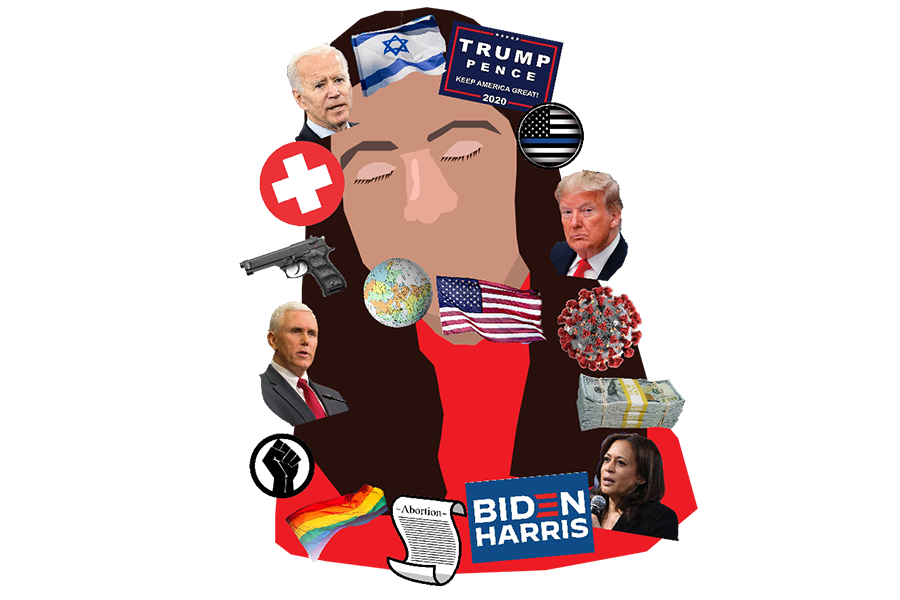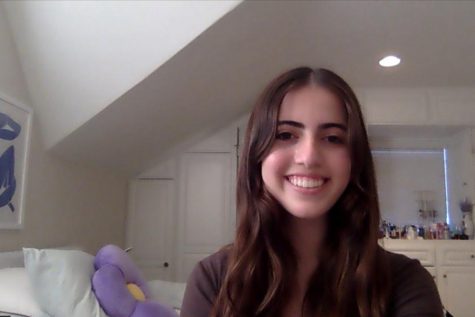Waiting for it all to go away
The end of this election season — and its harsh judgements about one another — will be a breath of fresh air
WISH: As the country is consumed with a divisive election, there are some who wish they could tune it out.
October 29, 2020
It’s on my neighbor’s front lawn, the topic of discussion at my dinner table, and infiltrating my Tik Tok ‘For You’ page. Politics. No matter where I go or what I’m doing, politics always seems to find a way into my day-to-day life.
All attempts to run away from the subject and take a breath of fresh air for just one moment seem to fail.
Being well-informed is essential and relatively easy with the technology accessible today. Having the news literally at our fingertips enables citizens to make informed decisions about which candidate or policies to support.
However, by allowing politics to become a major part of daily living, it has strained the unity among peers and built tension between friends.
The rise in political tension definitely has to do with the uniqueness of the upcoming election. But today’s teens having received cell phones with internet access so young also plays a role. We read and see so many contradictory videos and news articles. While each of us likes to claim that we do not fall victim to fake news or Instagram videos about politics, it is not always possible to fact-check the constant flow of information we are seeing. And also, not everyone cares to do so.
This is new. During the 2012 election, the worst thing I would see posted on Instagram regarding the candidates was an obviously edited video of Barack Obama or Mitt Romney singing “Call Me Maybe” by Carly Rae Jepson.
This year, social media has opened the floor for sharing opinions, and more hateful and extreme posts are being published. Some people say that Joe Biden has dementia; others compare Donald Trump to Adolf Hitler. These ideas then creep into the developing minds of the youth.
As the spread of political information, whether it is truthful or not, continues to expand, so does the time spent on discussing politics. The election this year is certainly distressing — what can people do other than talk about it?
Political Tik Toks in particular are often distasteful and unhelpful, since people preach and entertain in their videos instead of trying to educate others. And even the app’s algorithm cannot get me away from the matter. No matter how many times I press “not interested” on my Tik Tok feed, political posts still continue to appear.
Click-grabbing strangers are not the only offenders. Among people who know each other, friends on social media and within their group chats get involved in frustrating arguments defending their political ideologies. Anything you say can define your character in the eyes of others. Even if you yourself are undecided, your parents’ political affiliations may be applied to you by people seeking a way to peek into your belief system.
This year, politics is not only a part of our daily discussions. It has become integrated into the way we characterize people, and therefore into who we are in the eyes of others — even those who know us in multiple other ways.
As complex human beings with various perceptions of reality, we cannot just be divided into two categories. So why are this year’s political stances so often being applied to judge the character of others?
Grades, actions and words can’t define me, so why is it that many have decided this year that political associations do?
Maybe change is coming. Maybe change will gradually start after the election, only a few days from now, when signs on front lawns will be taken down, no longer able to create automatic biases. Maybe my Tik Tok For You page will no longer consist of angry and uninformative posts.
Maybe people will stop claiming that the “other side” is the only one that does not listen, when it is usually both sides.
Whenever it is, I cannot wait for that whiff of fresh air to come — if it ever does — far away from the loud sounds of politics.















